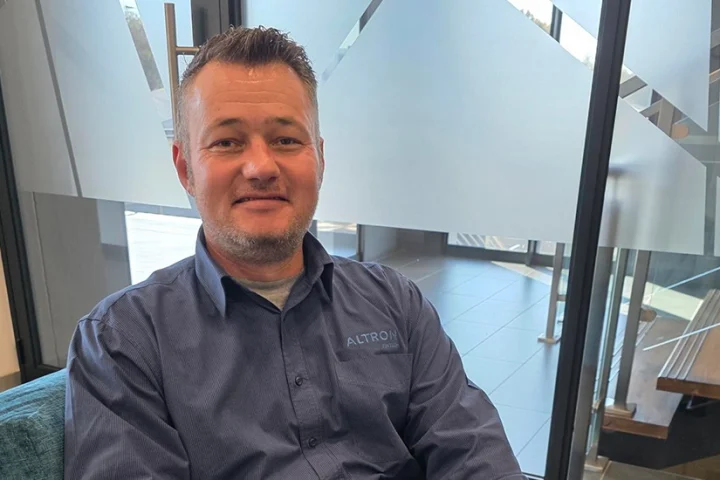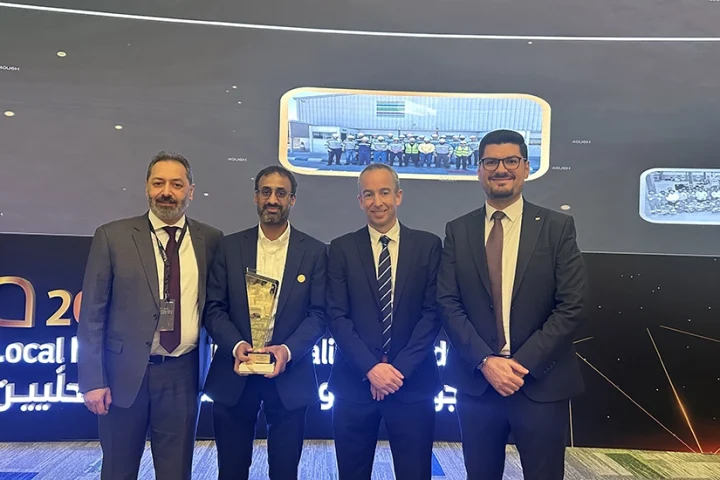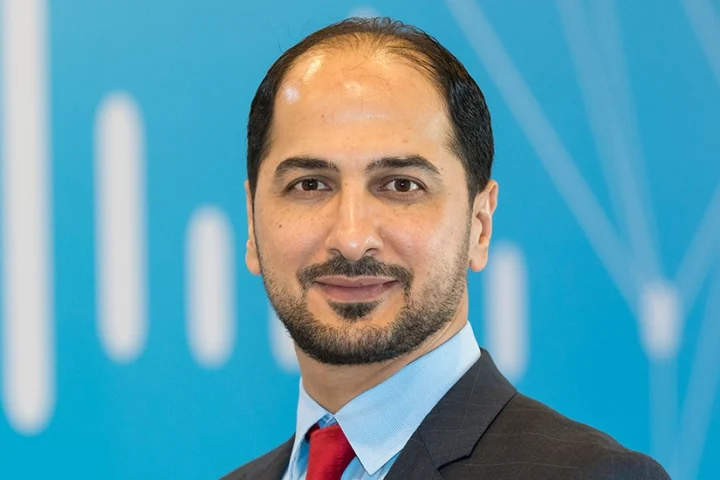As Qatar gears up for major ICT revamps and strides, Education sector is surely taking a uphill ride in metamorphosing and being synonyms to ‘Smart’. EC MEA gathers some key insights from Trevor Moore, CIO of Qatar University who talks on how QU has been redefining education on the platform of technology.
Education is synonyms to Progress, and ICT has been defining progress across verticals since decades now. How has ICT innovation helped in the journey of your university?
Technology has always been important to a university, students typically want the latest technologies to be used and the university has to keep up. In the past it was VCR then DVD, computer labs, now personal devices and cloud/mobile type services. Each college or degree specialism will have its own unique technology needs and they will change over time, so IT at Qatar University is always evolving to support the faculty and students.
Also Universities do a lot of research and that can lead to new technologies so as a university Technology is key component.
How is the role of IT changing at your university and what’s your contribution? How have you changed the IT infrastructure at your university over the recent times?
The role of IT has changed over the years from being in the background and seen as a service to today where IT is a core foundation of the university. My job as CIO is to work closely with the VP, Deans, directors, students etc. to ensure that what IT is delivering is cost effective, fit for purpose plus advise the trends in educational IT so the senior leadership can take strategic decisions relating to educational technology. One good example is we increase our internet bandwidth every year but it never seems to be enough students are accessing education resources online.
Which are the adaptive technology that you have adopted to enrich students learning and respond to their skills and pace?
Some of the adaptive technologies we have put in place are online access to courses, streaming of lectures, collaboration tools e.g. video conferencing basically digital technologies
How far have you implemented mobile learning environment in your university?
We have implemented mobile learning at QU we have the learning management system which is available on anytime/anyplace/any device. We have this past September launched QU mobile application that allows for all the typical services a student and faculty need to do on a daily basis be easily done through a mobile application. We are also in the process of rolling out a printing facility that will allow students to print from any device using the QU wireless network.
Blended learning- a reality or myth for Qatar university?
The students of today expect everything to be online and available anytime/anyplace/any device. Qatar University is on a journey to transform teaching to the digital age, this means students can access the educational resources anytime/any place/any device. It is not that simple to change from a traditional teaching method to digital and it takes time. Qatar University over the last 5 years has already implemented a lot of technologies that enhance the learning from a learning management system that allows faculty to put course notes, coursework, chat rooms, videos etc. and allow students in that class to access this anytime/any place/any device. We also have a lecture capture system that allows the faculty to record the lecture and upload it to the student information system so the students to see the lecture again. We are in the process of creating a private educational cloud to meet this strategic initiative for the university.
Ultimately the reason for doing this is help every one of our students succeed and they then can be a help Qatar with the 2030 vision.
What are the major areas of technology you are looking to upgrade your ICT infrastructure?
The IT infrastructure has under gone a massive transformation it the last few years with the end goal to provide a private cloud for education. So we have introduced more virtualization technologies, Software defined networking, better security, re-architecting the key applications, disaster recovery site, improvements to our data centre, hyper converged systems, enhancements to our network. The focus was on simplifying, automating, efficient, agile infrastructure that can respond to the university needs for today and tomorrow.
Can you shed some light on your Campus ERP? How has it eased various day to day operations and communication among the faculty?
The university has also grown over the last few years from 6500 students to around 17500 now so the two ERP systems we have were important to handle this growth. Qatar university has two ERP systems one for student information and the other for standard administrative tasks such as HR, Finance and procurement. The two systems are integrated and a lot of manual tasks are automated, we over the next year or so are looking to expand the services on the ERP and to automating more tasks to make the university more efficient
What is your opinion on Unified communication when it comes to educational premises?
Unified communication and social media are important for students to communicate with each other and the faculty. Students on the same course are encouraged to use Unified communications to collaborate and learn from each other. Learning is much more fun if it is social and student will learn more if they are having fun with class colleagues.
Faculty can provide feedback and lead chat rooms for their classes remotely so the learning experience is timelier rather than having one lecture and not seeing your faculty for a few days there is the opportunity to interact with faculty about the course outside the lecture classroom.
Sometimes Faculty may be based in another country and rather than flying that faculty at great expense to the students a university will use Video conferencing technologies/lecture capture for that teaching.
In near future, will technology usurp the teacher?
This is a difficult questions to answer, if you look at MOOCS and other online offerings the faculty will support hundreds or thousands of students who learn together in a more social way and the students learn a lot from each other and the faculty will advise lead the threads to make sure the topics are covered
There are trends to gamification of learning which turns learning into a game this is vital for subjects that are hard to study like maths, physics etc. Gamification is especially good in K1-K12 and will work hand in hand with the classroom teacher to enhance students learning.
I believe big data/analytics and intelligent computing like Watson will lead to some changes in most areas of education especially engineering and medicine. Faculty will still be very important to learning as they are the subject matter experts.
Do you feel there are some major problems your campus faces in day-to-day operations wherein innovative solutions could really ease up the process?
I would not say we have major problems; we have normal operating issues that any organisation has especially one that has grown dramatically over the last few years. We are always striving to provide to our customer and stakeholders innovative, automated, efficient solutions that improve our services. The recent launch of the QU mobile application is a great example of using innovative solutions to solve some of the day to day operational issues the university has.
CIOs debate whether IT should follow business change or lead it- what’s your view?
Both IT is the foundation of most business today and will be even more in the digital age (IOT, big data etc.). IT especially the CIO needs to a trusted advisor to the business and where possible give ideas on how to improve the business which will lead to bigger profits for that business. The digital change that is underway is a journey for ever business and sometimes IT will lead but others the market/business will. A good CIO though will be ahead of the market and propose to the business new ideas.
What is the most difficult technology-related investment decision you had to make? Why was it difficult and what was the outcome?
All technology decisions can be complicated I would not say any is more difficult than the other you need to look at the value to the University and the reason for doing the investment. It has to be strategic and enhance the education/research at the university. So basically an ROI type calculation and not just for technology sake.
What percentage of enterprise revenue is your current IT budget? How does this compare with your industry peers?
Since we are a university this is a difficult question to answer, Qatar University as a whole is funded by the State of Qatar. The University has grown massively in the last three years from 6500 students to around 17500 students this semester. We have seen growth in our funding but from the highest management down we have focused on providing value to the state of Qatar and our stakeholders, ensuring all projects bring value to the university.
How far have you implemented virtualization?
The university infrastructure is around 75% virtualized this has grown from 15-20% 2 years ago. We have in the last 2 years completely re-architected the Infrastructure and applications to support virtualization and help reduce the complexity and the costs of the IT infrastructure to the university. One good example is we removed older servers by virtualizing the applications and saved 25% on our power/cooling.
What’s your view on hybrid cloud adoption? Are you in favor of it or do you prefer to play safe and just stick to private cloud?
Hybrid cloud is a good choice in my opinion providing security/SLA questions can be answered by the cloud provider. The current big concern for me in regards to public cloud is who has jurisdiction over the data, can one country use its court systems to view data that may not be stored in that country. We at Qatar University apply the local ICT government policies in regards to using cloud services which is for private cloud.
Security is a prime concern in the Middle East of late; what designs do you have in place in your arsenal to take care of this? Are you willing to entrust your security to a third party service provider?
IT/Information Security is a key concern for not just the Middle East but everywhere. I can’t really speak about what we have in place as this may give someone information that they could use to hack us. I will say we have built over the last three years an Information security department within IT to better secure Qatar University IT end to end. We use external companies to do ethical hacking of us to see any weaknesses, we also got ISO-27001 accreditation to help with the processes that go along with security.

















